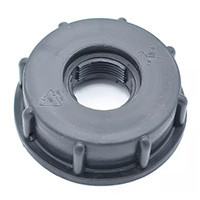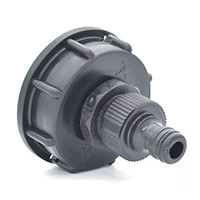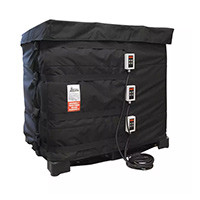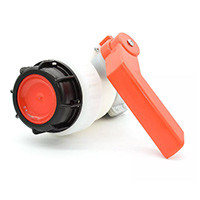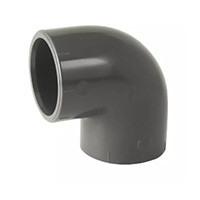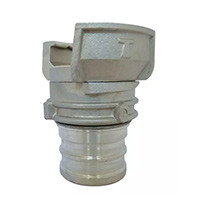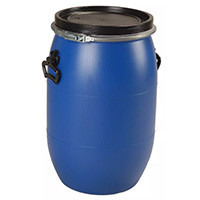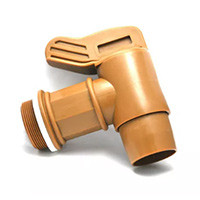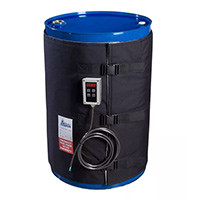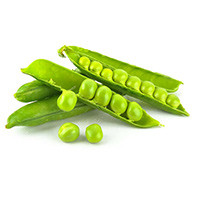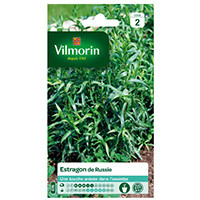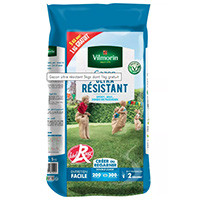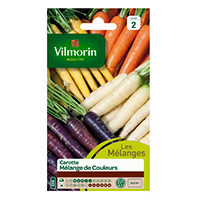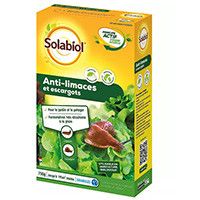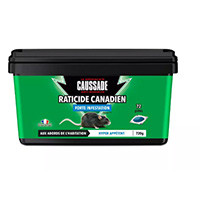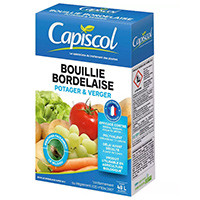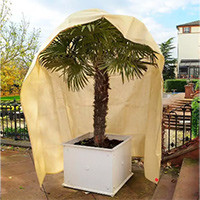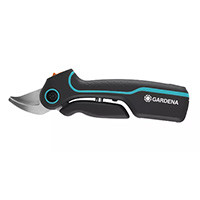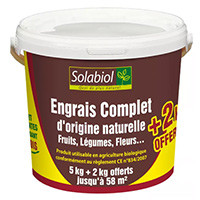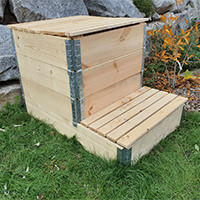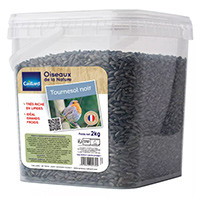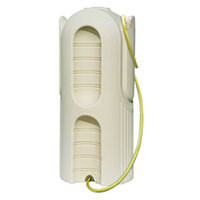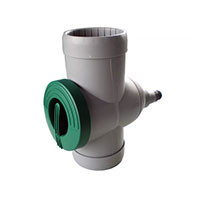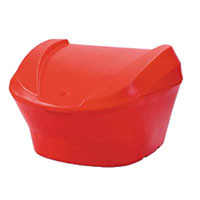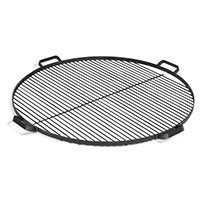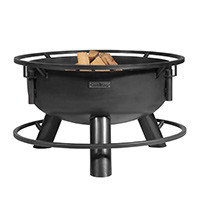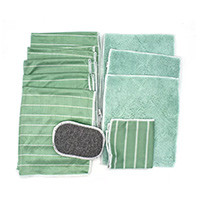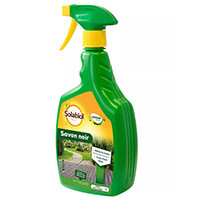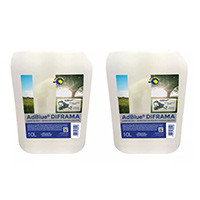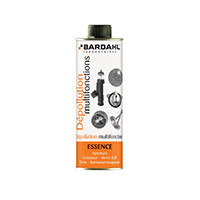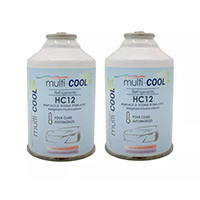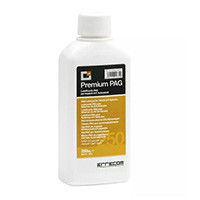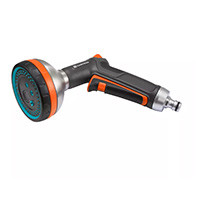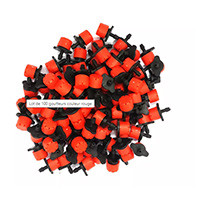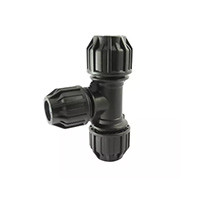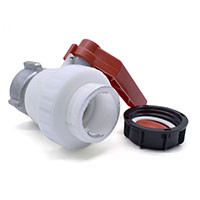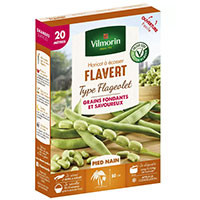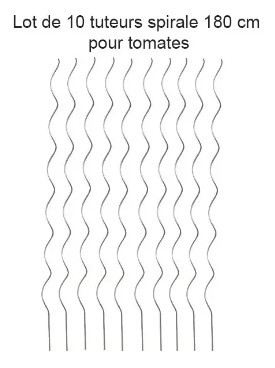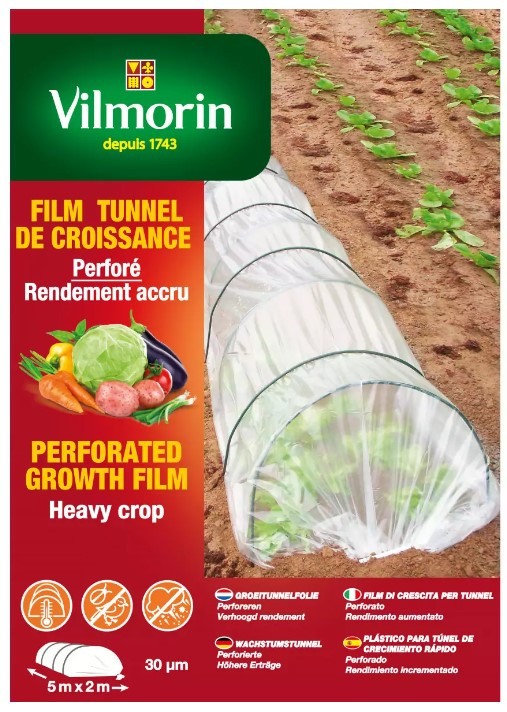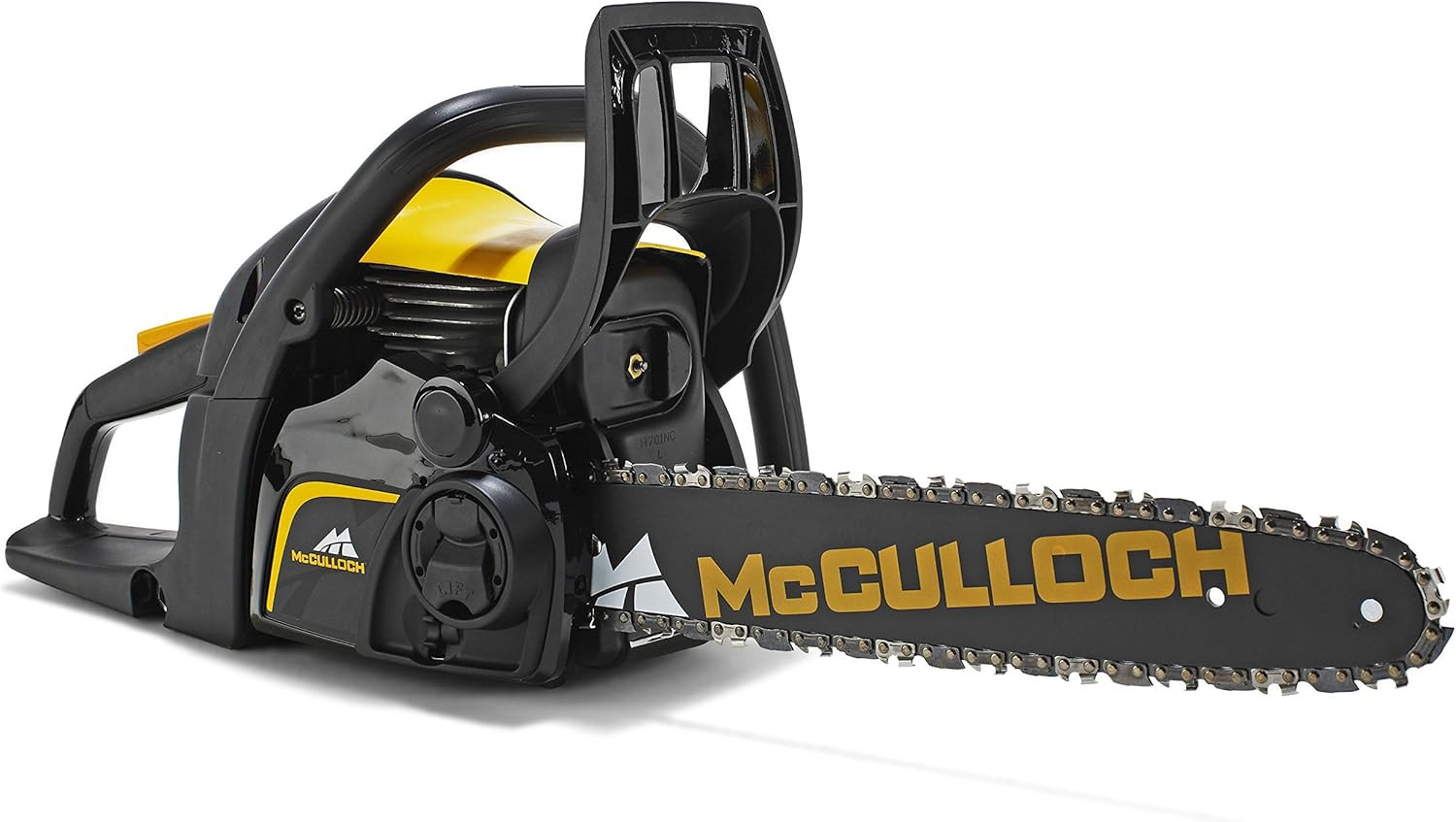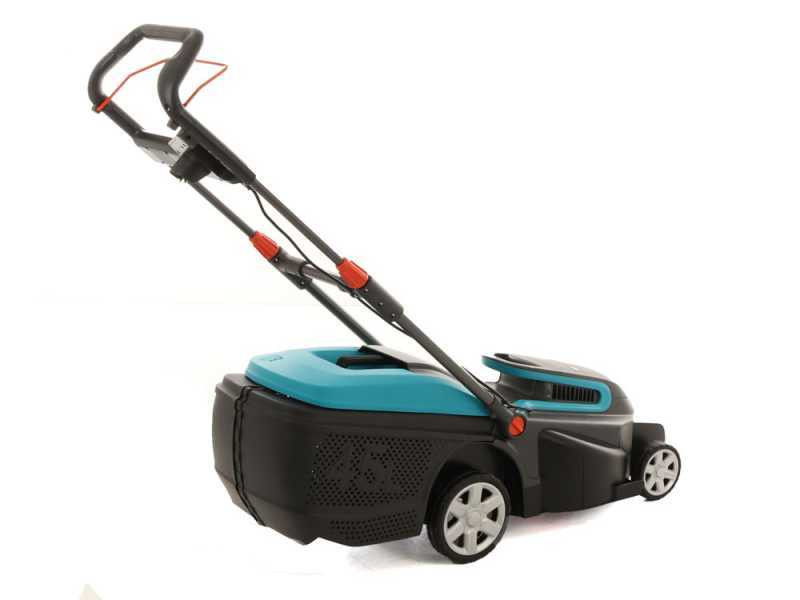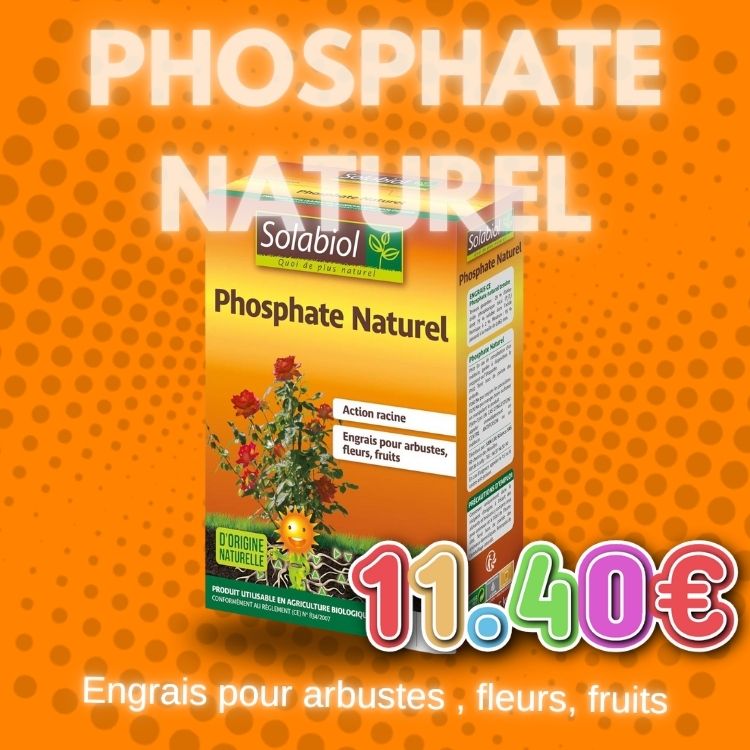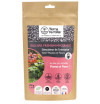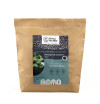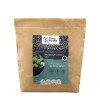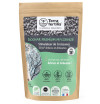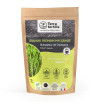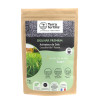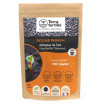
Biochar Terra Fertilis : living soil, sustainable cultivation
Table of Contents
- Introduction: What if the key to fertile soil was... Coal?
- 2. What is Biochar? A natural amendment to (re)discover
- 3. How is biochar made? A controlled, clean and sustainable process
- 4. What is biochar used for? A super-amendment with multiple effects
- 5. Focus on the mycorrhizal version: an alliance between soil, fungi and plants
- 6. When should biochar be used? Wherever the earth needs a helping hand
- 7. What Biochar Brings to Your Soils (and Your Wallet)
- 8. How to use biochar properly? Simplified user manual
- 9. Why choose biochar Terra Fertilis ? Controlled quality, at the service of your floors
- 10. Frequently Asked Questions / Common Objections
- 11. Conclusion & Call to Action: A Simple Solution for Living Soils
Introduction: What if the key to fertile soil was... Coal?
For a long time, it was believed that a good garden depended on only one thing: fertilizer. Organic or chemical, liquid or granulated, he was the king of the vegetable garden. However, more and more gardeners, farmers and local authorities are discovering another way: that of biochar, a natural amendment capable of sustainably transforming the quality of soil, while responding to current ecological challenges.
Faced with the drought that is setting in, impoverished soils and the need to produce differently, biochar is a solution that is as simple as it is effective. This vegetable charcoal has nothing to do with that of the barbecue: it acts as a fertile sponge, a memory of the soil, a reservoir of nutrients. And when combined with mycorrhizae – these root-friendly microfungi – its effects are even more spectacular.
The return of a forgotten ancestral technique
Biochar is not a modern invention. Ancient civilizations in the Amazon were already using a version of this coal to make their black soil more fertile than that of their neighbors. This "Terra Preta" (black earth) still fascinates agronomists today: more than 1000 years after it was buried, the soil is still rich and alive.
By rediscovering this technique, adapted to modern practices and certified for organic farming, we are bringing back a natural and sustainable method to improve soil health without chemicals.
A product to meet today's challenges... and tomorrow
Repeated droughts, reduced yields, impoverishment of soil microbial life, water stress in plantations, the need to limit inputs... Biochar ticks all the boxes:
It improves water holding capacity
It increases the natural fertility of the soil
It promotes beneficial microbial life
It stores carbon in the soil for decades
And above all, it works for years, unlike a conventional fertilizer
What you'll find out in this article
In the following lines, you will understand:
What exactly is biochar and how it is made
Why it's so beneficial for your soil and plants
What is the difference between a simple biochar and a mycorrhizal biochar
How to use it properly, whether you are a vegetable gardener, arborist or landscaper
And finally, why choosing the biochar Terra Fertilis offered on multitanks.com is a wise choice for the planet... and for your crops
2. What is Biochar? A natural amendment to (re)discover
Biochar is simply charcoal for agricultural use. But be careful: it is not waste, nor a residue from the chimney. It is a product deliberately manufactured to enrich the soil, in a sustainable, efficient and environmentally friendly way.
A coal like no other
Biochar is obtained from organic plant matter, usually wood residues (such as softwood chips), which are heated to a high temperature (around 500°C) in the absence of oxygen. This process, called pyrolysis, does not burn the material, but transforms it deeply.
The result: A black material, light, porous, ultra-stable in the soil, and capable of playing several roles:
absorb and retain water,
serve as a refuge for beneficial microorganisms,
fix nutrients to release them gradually,
limit leaching and groundwater pollution.
Technology inspired by ancient civilizations
The concept of biochar is not new. It is inspired by an ancestral practice, observed among the peoples of Amazonia. They enriched their land with artisanal charcoal, forming what is now known as Terra Preta, or "black earth".
These soils, still fertile more than 500 years later, demonstrate the incredible power of this material to regenerate the fertility of depleted soils, even in difficult conditions.
Biochar ≠ compost ≠ barbecue charcoal
It is important to distinguish between:
Compost nourishes the soil, but degrades quickly.
Barbecue charcoal is too loaded with tars and is not made for agriculture.
Biochar, on the other hand, structures the soil, without decomposing. It acts as an invisible framework that sustainably improves the soil's ability to nourish plants.
An enriched version: mycorrhizal biochar
At multitanks.com, we also offer an even more complete version: mycorrhizal biochar, i.e. enriched with selected mycorrhizal fungi . These microorganisms, in symbiosis with the roots, improve the absorption of water and nutrients, while stimulating plant growth.
It is a true natural synergy, where biochar plays the role of support, reservoir and catalyst. An all-in-one, ready-to-use solution that combines soil structure and active microbial life.
3. How is biochar made? A controlled, clean and sustainable process
Biochar cannot be improvised. To guarantee its benefits and avoid any negative effects on the soil, its manufacture must follow a rigorous process. This is where everything is at stake: a good biochar is first and foremost a well-made biochar.
Pyrolysis: cooking without fire
Biochar is the result of a very specific thermal process: pyrolysis, i.e. the slow heating of biomass (wood in most cases), in the absence of oxygen. Unlike conventional combustion, there is no flame here. We don't burn the material: we transform it.
This pyrolysis operates at temperatures generally between 450°C and 700°C, depending on the type of biochar. This treatment will:
remove volatile elements,
concentrating carbon,
create a unique porous structure , essential for water retention and the reception of microorganisms.
A controlled raw material: softwood
The biochar offered on multitanks.com, under the brand name Terra Fertilis, is obtained from untreated softwood residues. It is therefore neither industrial coal nor dubious by-products, but a material from sustainable sources, without additives, heavy metals or petrochemical resins.
This wood, which was previously little valued, is thus transformed into an ecological amendment with high added value.
EBC certification: a guarantee of quality and traceability
To ensure that biochar respects the environment and soil health, the best products like those from Terra Fertilis are EBC (European Biochar Certificate) certified. This European standard guarantees:
a contaminant-free biochar,
a traced plant origin,
consistent quality between batches,
and a favourable carbon footprint, thanks to the sequestration of CO₂ in the soil.
This is an essential point for organic farmers as well as for amateur gardeners: you know what you are putting in your soil, and why it works.
Eco-responsible manufacturing
Unlike many fertilizers or chemical amendments, the manufacture of biochar:
does not pollute groundwater,
avoids CO₂ emissions (thanks to clean pyrolysis),
sequesters carbon in the soil for hundreds of years,
recycles plant waste from a local wood industry.
The result: zero waste, zero negative impact, and lasting benefits for plants, the earth... and the environment.
4. What is biochar used for? A super-amendment with multiple effects
Biochar is not a simple "addition" to the soil, like adding a little potting soil or fertilizer. It acts in depth, on the very structure of the soil, and this over the long term. Its effectiveness is based on a unique combination of physical, chemical and biological properties that make it a true catalyst for fertility.
It retains water, even when it's dry
Thanks to its porous structure comparable to a natural sponge, biochar stores water in the soil and gradually releases it back to the plants. This is a major asset, especially in periods of drought or in sandy soils that tend to dry out quickly.
The result: less watering, cooler soil, and plants that are more resistant to water stress.
It captures and releases nutrients
Biochar also acts as a nutrient bank. Instead of fertilizers being leached by rain, they settle in the micro-cavities of the biochar. This keeps them available to plants over time.
The result: better efficiency of organic or mineral inputs, and less waste.
It stimulates microbial life
Biochar does not feed plants directly, but it offers an ideal habitat for soil microorganisms : bacteria, fungi, earthworms, etc. All these invisible allies that break down organic matter and make the elements assimilable for the roots.
The result: a living, more balanced soil that promotes plant health without the need for chemical treatments.
It improves soil structure
In heavy soils (clayey), it aerates and lightens the texture. In poor or sandy soils, it structures and retains water and nutrients. Regardless of the type of soil, biochar naturally corrects physical imbalances, something that few amendments can do.
It works for years
Unlike most organic fertilizers or amendments, which decompose in a matter of months, biochar remains active for decades in the soil. Its structure is stable, inert and resistant to biological degradation.
The result: a sustainable investment, which improves the soil today... and for a long time.
In summary, biochar is:
Better water retention
A nutrient reserve for plants
Support for soil microbial life
Improved physical soil structure
A sustainable and ecological solution
5. Focus on the mycorrhizal version: an alliance between soil, fungi and plants
Biochar is already a great amendment in itself. But when you add mycorrhizae, you completely change dimension. It's a bit like transforming good soil into a living, hyperconnected ecosystem, where every root benefits from a smart underground network.
What are mycorrhizae?
Mycorrhizae are microfungi naturally present in living soils, which live in symbiosis with plant roots. By attaching themselves to these roots, they extend their network underground, like a thin and branched web, capable of:
look for water further and deeper,
absorb nutrients that the roots alone could not reach,
stimulate the plants' natural defences ,
Accelerate plant growth , even under harsh conditions.
A natural synergy with biochar
Mycorrhizal biochar combines these microfungi with a biochar base. Why does this combination work so well? Because biochar:
provides an ideal refuge for fungal spores,
maintains a stable humidity level,
reduces external aggressions (drought, leaching, pollution),
acts as an "accelerator" of root colonization .
The result: rapid root establishment, boosted plant growth, and increased resilience to climatic or water stresses.
Mycorrhizal biochar: for whom, for what?
The mycorrhizal version of biochar Terra Fertilis is available according to the uses:
✅ Vegetable garden and edible plants : better production, stronger roots, reduced watering
✅ Trees, shrubs, hedges : easier establishment, faster recovery, sustainable growth
✅ Lawn and turf : increased density, homogeneity of emergence, resistance to drought
All formats available on multitanks.com contain a minimum of 50 active propagules per gram, which guarantees effective colonization from the first days, without chemical treatment or synthetic fertilizers.
A ready-to-use solution, without preparation
Unlike raw biochar, which is recommended to be "activated" with compost or manure before use, mycorrhizal biochar is directly ready for use. The microorganisms are already integrated and are activated in contact with soil and moisture.
No need for prior mixing or homemade recipes: you open the bag, you apply, and it works by itself.
6. When should biochar be used? Wherever the earth needs a helping hand
Biochar is extremely versatile. Whether you're a home gardener, a professional landscaper, or a farmer looking for sustainable solutions, you can easily incorporate this amendment into your practices. It adapts to almost any context, as long as the right dosages are respected.
Vegetable garden and growing containers
Biochar is particularly effective in vegetable crops : tomatoes, zucchini, lettuce, carrots, strawberries, aromatic herbs, etc. It improves soil texture, retains water, prevents nutrient leaching, and promotes plant growth.
Ideal for urban or rural gardeners who want to reduce watering and improve their harvests naturally, even in poor or compacted soil.
Ornamental trees, hedges and shrubs
When planting fruit trees, decorative shrubs or hedges, biochar (especially in its mycorrhizal version) allows for better root recovery, even in difficult or compacted soil. It retains moisture around the root ball and stimulates deep root development.
A real solution for planting in the ground or in containers, especially in recently landscaped gardens.
Turf, lawn and re-seeding
Turf biochar (fine-grained) promotes faster germination and more homogeneous growth density. It also improves the turf's resistance to trampling, drought and root diseases.
Very useful when installing a new lawn, but also in overseeding to regenerate a tired lawn.
Planters, pots and soilless cultivation
In balcony planters and planters, the substrate often tends to dry out or lose its nutrients quickly. Biochar helps structure the potting soil, limit watering and preserve fertilisers.
Perfect solution for lovers of square vegetable gardens, pot cultivation, or domestic greenhouses.
Agriculture, market gardening and permaculture
Biochar is also being used in agricultural practices on a larger scale. It is used in:
degraded or eroded soils,
water-stressed areas,
rotational or intercropping systems (with legumes, green manure, etc.),
organic or transitional production.
It contributes to land regeneration, the reduction of input needs and better resilience to climatic hazards.
Summary of recommended uses:
✅ Vegetable gardens
✅ Orchards, tree plantations
✅ Hedges, beds and ornamental plants
✅ Grass and green spaces
✅ Soilless cultivation in pots and planters
✅ Depleted or compacted soils
✅ Organic agriculture and diversified market gardening
7. What Biochar Brings to Your Soils (and Your Wallet)
When you invest in a product for your garden or crops , you are looking for two things: efficiency and profitability. Biochar ticks both boxes. It not only acts immediately on the quality of the soil, it sustainably transforms its functioning, with positive effects for your plants... for your budget.
A richer, more balanced, more autonomous soil
Biochar does not directly provide nitrogen or potassium, as a fertilizer would. But it optimizes the way the soil uses what it is given. It creates an environment where nutrients circulate better, water remains available longer, and microorganisms work continuously.
As a result, your inputs (fertilizer, compost, manure, etc.) are better valued, and your plants get the most out of what you offer them.
Less watering = tangible savings
Thanks to its microporous structure, biochar retains water like a sponge. It reduces the frequency of watering, especially in summer or dry areas.
For a vegetable garden or lawn, this represents several dozen litres saved per m² and per week, and therefore a significant reduction in your water consumption.
Exceptional duration of action
A conventional fertilizer works for a few weeks or months. Biochar, on the other hand, remains active in the soil for several years, sometimes even decades. It does not decompose, evaporate or disappear: it structures the soil for a long time.
It is a long-term investment : a single application may be enough to improve soil fertility for the coming seasons.
More resistant plants = fewer treatments
A balanced, living soil, well structured thanks to biochar, gives rise to plants:
more resistant to fungal diseases,
less sensitive to water stress,
able to better withstand cold or heat stroke.
Fewer treatments, fewer losses, more harvests, with fewer interventions.
A gesture good for the planet... and for your finances
In addition to being effective in the field, biochar contributes to carbon sequestration in soils. It stores CO₂ sustainably, participates in the fight against global warming, and promotes more virtuous agricultural or gardening practices.
By relying on biochar, you are making a profitable, responsible and sustainable choice.
8. How to use biochar properly? Simplified user manual
Using biochar is not complicated, but to get the most out of it, it's essential to follow a few basic rules. Depending on whether it is crude or mycorrhizae, the application methods differ slightly. Here's what you need to know to use it effectively in your garden or plantings.
Raw Biochar: Recommended Activation
Raw biochar is very porous, which is a great thing... provided that it does not "steal" nutrients from your soil when incorporated. This is why it is advisable to load it before use, providing it with nutrients.
Possible activation methods:
mix it with well-ripened compost for 2 to 3 weeks,
moisten it with nettle manure, comfrey or compost tea,
or simply soak it in a mixture of water + organic fertilizer.
The goal: to saturate the pores of the biochar so that they are immediately beneficial to the roots, rather than absorbing the surrounding nutrients.
Mycorrhizal biochar: ready to use
The mycorrhizal biochar sold on multitanks.com is already enriched with beneficial fungal propagules, and does not require any prior activation. Simply apply it directly to the soil at the time of planting or amendment.
It is the ideal solution for gardeners in a hurry or those who want a turnkey product.
Recommended dosages according to use
Here are some simple guidelines for dosing biochar:
| Usage | Recommended dosage | Practical advice |
|---|---|---|
| Kitchen garden | 1 to 2 liters/m² | Mix with soil over 10-15 cm |
| Lawn | 0.5 to 1 liter/m² | Apply before sowing or overseeding |
| Trees / Shrubs | 1 to 2 handfuls / plant | Mix with the soil from the planting hole |
| Pots & tubs | 10 to 20% of the volume of the substrate | Stir into potting soil before potting |
These quantities may vary slightly depending on the initial richness of the soil and your objectives (maintenance or regeneration).
Mixing, burying and watering
Regardless of the type of biochar used, it is important to incorporate it well into the soil. Leaving it on the surface exposes it to the wind and reduces its effectiveness.
✅ The right gestures:
Mix carefully with soil or substrate, on the first 15 to 20 centimeters,
Water thoroughly after incorporation (especially in dry climates),
Avoid burying it too deeply (it is not a bottom fertilizer)
When should it be applied?
Biochar can be applied at any time of the year, but the most effective times are:
in spring, when sowing or planting,
in the fall, to regenerate the soil before winter.
It can also be used when preparing a lawn or vegetable garden or when planting young trees.
9. Why choose biochar Terra Fertilis ? Controlled quality, at the service of your floors
In the biochar market, not all products are created equal. Some are not very porous, others are not activated, and others are made from poor quality wood or wood without certification. With the Terra Fertilisrange, offered on multitanks.com, you are choosing a professional, safe and effective biochar, designed to bring a measurable benefit to your crops.
A 100% natural and controlled composition
Biochar Terra Fertilis is made from 90% softwood, carefully selected, untreated, and recovered using a clean pyrolysis process. No industrial waste, no additives, no pollutants.
This guarantees you a healthy plant amendment, suitable for all types of soils and crops, including organic farming.
Certified performance
The Terra Fertilis biochar complies with the EBC (European Biochar Certificate) standards, one of the strictest in Europe. This certification ensures:
traceability of raw materials,
the absence of heavy metals or toxic compounds,
Effectiveness validated by laboratory tests.
It is a guarantee of quality, regularity and safety for all users, from individuals to professional farmers.
Particle sizes adapted to each use
Terra Fertilis offers several types of biochar depending on the needs:
1 to 2 mm : ideal for lawns, lawns and re-seeding,
2 to 4 mm : perfect for vegetable gardens, trees and flower beds,
Ready-to-use mycorrhizal formats : vegetable garden, trees/shrubs, lawn, etc.
No waste, no dosing errors: you choose the right formula for your soil and plants, without complicating your life.
A complete and efficient mycorrhizal version
Active mycorrhizae-enriched versions of Terra Fertilis are designed for immediate effectiveness. They contain a minimum of 50 propagules per gram, which guarantees rapid root colonization and a visible improvement in growth.
It's an all-in-one, no-mixing, no-waiting solution that works from the first use.
A product available in several formats on multitanks.com
Whether you need a small bag for your balcony or a 5 kg size for your garden, the Terra Fertilis range adapts to your surface:
Mycorrhizal vegetable garden: 250 g, 500 g, 1 kg, 2.5 kg
Trees and shrubs: 500 g, 1 kg, 2.5 kg
Biochar Trilis grain size 1-2 mm or 2-4 mm: 5 kg
All of these products are available directly on multitanks.com, with fast shipping and personalized advice on request.
10. Frequently Asked Questions / Common Objections
Despite its many advantages, biochar can still raise questions. This is normal: it is relatively new to many gardeners or farmers. Here are the answers to the most frequently asked questions, to help you see things clearly.
"Is biochar like barbecue charcoal?"
No, absolutely not. Barbecue charcoal is designed to burn and give off heat, often from treated wood or even toxic additives. Biochar is a plant-based, clean, stabilized and non-flammable product, cold-made without oxygen, only to amend soils. It is neither polluting nor dangerous for plants.
"Does it change the pH of the soil?"
Biochar Terra Fertilis has an alkaline pH (around 8), but in practice it does not raise the overall pH significantly if you adhere to the recommended dosages. It acts as a natural buffer, correcting excess acidity in soils without unbalancing them. On neutral or slightly acidic soil, it provides stability.
"Is there a risk of overdose?"
No, biochar is not a fertilizer: it does not provide direct nutrients, so you are not likely to burn your plants. On the other hand, an excess of unactivated (raw) biochar can stunt growth if it absorbs too much nitrogen. That's why you can pre-activate it or opt for the ready-to-use mycorrhizal version. Respect the dosages, and everything will be fine.
"Can it be used in organic farming?"
Yes, absolutely. Biochar Terra Fertilis is 100% natural and suitable for use in organic farming, according to European Regulation EC 2018/848. It is even recommended for soil regeneration in organic farming, in combination with compost or manure.
"What if my soil is already fertile?"
Even in already rich soil, biochar structures, stabilizes and prolongs fertility. It limits the leaching of nutrients and strengthens the soil's resilience to climatic hazards (drought, excess water, etc.). In other words: it protects your floor over time, even if everything is fine today.
11. Conclusion & Call to Action: A Simple Solution for Living Soils
Biochar, and even more so in its mycorrhizal version, is not a gardening gadget. It is a sustainable, natural, versatile amendment, which responds to a reality that all gardeners, amateur or professional, are noticing: our soils are depleting.
Whether you're growing a few tomatoes on your balcony or maintaining an orchard, you need soil:
that retains water,
that feeds your plants continuously,
that stays alive, even in the middle of summer,
and that helps you do more with less : less watering, less fertilizer, fewer treatments.
Biochar brings all of that. It works slowly but surely, deeply, and its effects increase over time. It's a smart investment, both for the fertility of your crops and for the overall health of your ecosystem.
Take action today
On multitanks.com, you will find a complete range of biochar Terra Fertilis, in raw or mycorrhizae-enriched versions, depending on your needs:
For your vegetable garden : Test the 500 g or 1 kg mycorrhizal bag.
For your trees and hedges : Opt for the 2.5 kg versions.
For your lawn : The 5 kg format with a fine grain size (1-2 mm) is perfect.
All products are:
Ready-to-use,
from sustainable plant materials,
safe for wildlife, children, or pets,
compatible with organic farming.
Give your soil what it has always been waiting for: a return to natural balance.
Try biochar now, and see the difference in a single season.
Share this content

